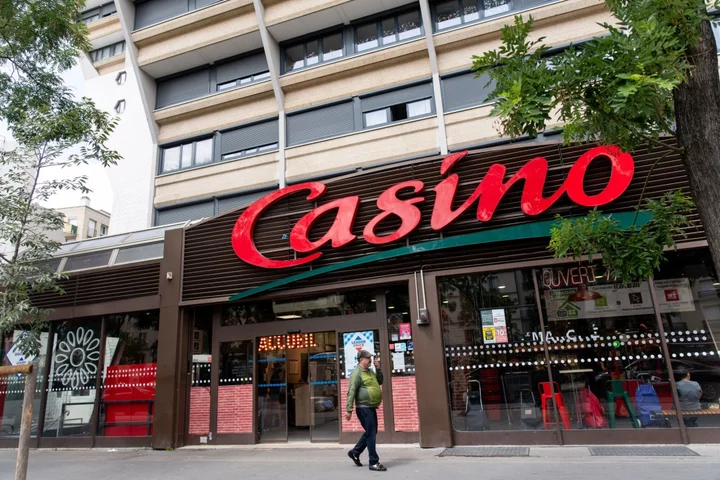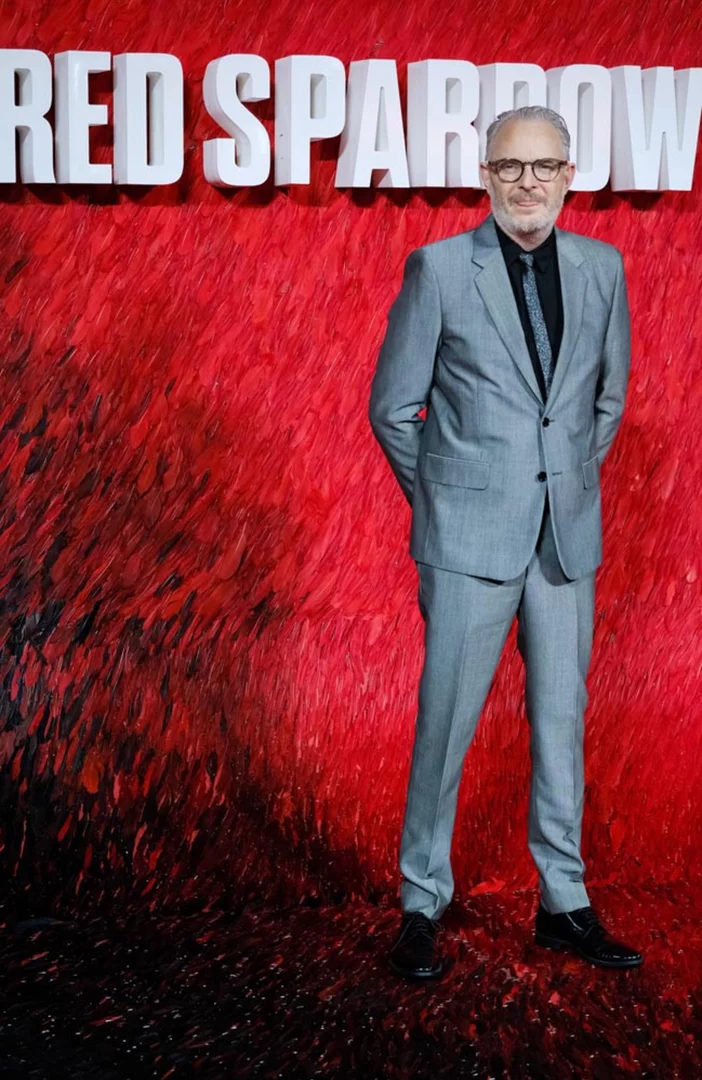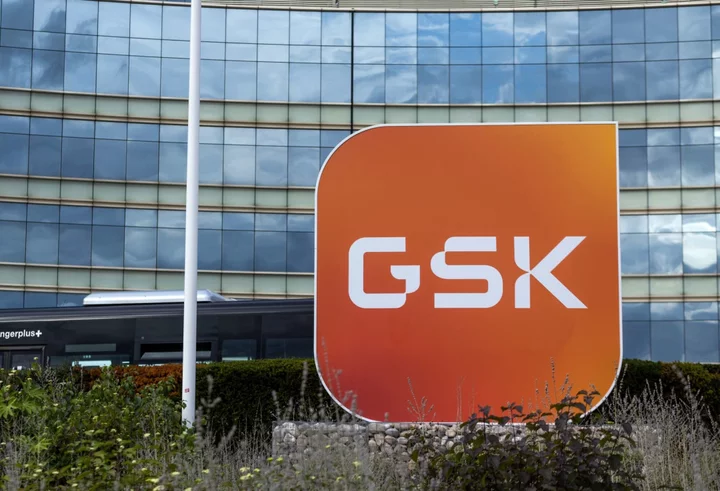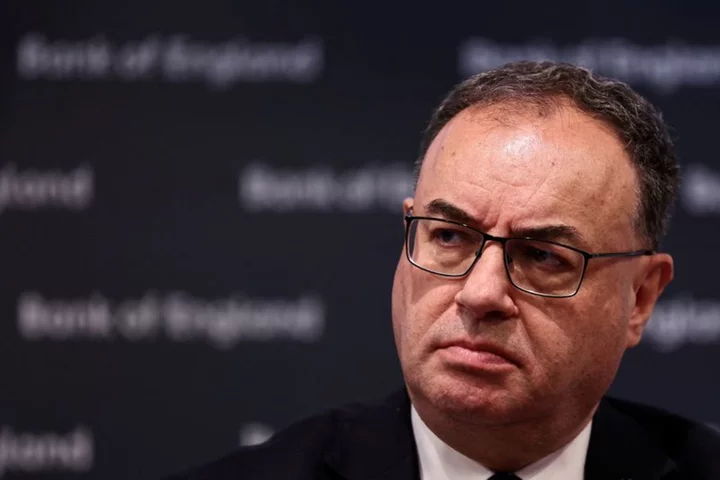
French Grocer Casino Gets Interest for Sale of Further Stores
Casino Guichard-Perrachon SA has received preliminary expressions of interest for some of its hypermarkets and supermarkets as the
1970-01-01 08:00

Twilight director Catherine Hardwicke names dream cast for reboot
Twilight director Catherine Hardwicke has revealed she would choose Jacob Elordi and Jenna Ortega to play the lead roles if the film was ever rebooted
1970-01-01 08:00

Jennifer Lopez's new album is a 'musical experience'
Jennifer Lopez has declared her new album This Is Me ... Now will take fans on a 'musical experience' with the singer revealing it's all about the 'journey on the search for truth about love'
1970-01-01 08:00

Killing Joke guitarist Kevin ‘Geordie’ Walker dead at 64
Kevin ‘Geordie’ Walker passed away at the weekend after suffering a stroke.
1970-01-01 08:00

Keanu Reeves' Constantine sequel in early stages
Francis Lawrence has provided a promising update on the 'Constantine' sequel.
1970-01-01 08:00

Deutsche Bank’s DWS Taps Former Oaktree Veteran for Alternatives
DWS Group, the asset management arm of Deutsche Bank AG, has hired Dan Robinson to lead its EMEA
1970-01-01 08:00

England wasted the brilliance of Terry Venables and were left to wonder what might have been
Terry Venables was the lost great England manager and, until Gareth Southgate, the last great England manager. The link between Alf Ramsey, for whom he briefly played, and Southgate, who he plucked from Aston Villa and turned into an assured international with seeming ease, Venables may have fashioned the best England team since 1966. And if that verdict comes from the slender evidence of perhaps two-and-a-half games of playing well on home soil – the second 45 minutes against Scotland, the rout of the Netherlands, the semi-final against Germany – Euro 96 will forever leave a generation with a sense of what might have been. From the wreckage of the doomed campaign to qualify for the 1994 World Cup, Venables seemed to inspire an English enlightenment. From the plodding dullness of long-ball football purveyed by limited players, he allied technical and tactical excellence with attacking intent and a willingness to embrace all the talents at his disposal. It may have been the only time in the last half-century when England were the finest team in a tournament; it is not jingoism to think that, had Germany been worse at penalties, Venables’ team would have beaten Czech Republic in the final. It ought to have been the start of an era; instead, it was an interlude. On Sunday, Venables died aged 80 after a long illness. He managed England for two-and-a-half of those years and it should have been more. If the FA’s reluctance to extend his deal before Euro 96 reflected a sense of disquiet about his business dealings – Venables ended up being banned from being a company director for seven years – it was a mistake. No one else took England to a semi-final for more than two decades; even when Southgate did, no one else brought such adept man-management and tactical nous. If Venables was England’s most charismatic manager, a throwback in that respect to Tommy Docherty, under whom he emerged at Chelsea, and Malcolm Allison, who gave him his first coaching job at Crystal Palace, he was years ahead of his time in other respects. Gary Neville recalled ostensibly playing right-back in three consecutive games at Euro 96, but actually occupying different positions in each. In an age of a lumpen 4-4-2, Venables could switch systems, adopt the Christmas tree or the back three, school the Dutch in Total Football. The managers England later imported at great expense, Sven-Goran Eriksson and Fabio Capello, produced less sophisticated football than the boy from Dagenham. The tributes reflected his rare gifts. “The best, most innovative coach that I had the privilege and pleasure of playing for,” said Gary Lineker, who also played for Johan Cruyff. “The most technically gifted coach that I ever played under,” said Neville, who played 602 times for Sir Alex Ferguson. And yet the tragedy of Venables, for him as well as England, was that his eventual achievements placed him in the category of the very good and not the great. Perhaps only penalties kept him out of the pantheon: Southgate’s tame spot-kick in 1996, the four that – ludicrously – Barcelona contrived to miss while scoring none in the 1986 European Cup final shootout. And if there is an Anglocentric focus on the national team, it is worth noting that in the last seven decades, only one English manager has won either the French, German, Italian or Spanish league title: Venables, in his first season at Barcelona, when they had not been champions for a decade, when Diego Maradona had been sold and the man hired from QPR replaced him with Steve Archibald. They won La Liga by 10 points, topping the table from start to finish. He was a game away from a second stunning achievement, winning Barcelona’s maiden European Cup. Steaua Bucharest defended for 120 minutes in the final before what Venables subsequently described as “the worst penalty shootout you’ve ever seen”. Yet there is a picture after the semi-final of a teenager on Barcelona’s books gazing up adoringly at Venables. If a young Pep Guardiola was influenced by Venables, he was not alone. Yet a managerial career can be divided into two halves: before and after Euro 96. He enjoyed success everywhere in the first part of his coaching career, taking Palace to promotion and, briefly, top of the old Division 1, QPR to a fifth-place finish, Tottenham to third and the FA Cup, which he had also won as a Spurs player. But football sometimes seemed insufficient for a man of his ideas, energy and entrepreneurial spirit. Venables was author, crooner, nightclub owner. He had a sharp intellect, a belief in his own ability, but also a willingness to aim for the boardroom when he was at his best on the training pitch and in the dugout. In a way, Venables’ other interests made him suited to international management; the nature of them made the FA uncomfortable. And he left the job that suited him best. He went on to take Australia to the brink of the World Cup, denied only by away goals, and rescue Middlesbrough from relegation, but spells back at Palace, at Leeds and as assistant to Steve McClaren at England represented an underwhelming end to a coaching career that took him to the brink of history. There was, though, a fitting element to finishing with England. Venables played for his country at every level, from schoolboy to youth, amateur, under-23 and the full senior team. He was capped just twice by Ramsey; perhaps it did not help that sons of Dagenham were very different – Ramsey the social climber who took elocution lessons, Venables the brash, wisecracking showman. He was not to be a World Cup winner; he made the provisional 33-man squad for the 1966 tournament, but not the final 22. But the glimpse of glory as a manager was tantalising. Venables brought hope to English football, boosting its self-esteem, forging indelible memories, whether of Paul Gascoigne’s goal against Scotland or the 4-1 evisceration of the Netherlands. He left England – the players and the fans, anyway – wanting more. Nostalgia for Euro 96 is already a cottage industry and, as no Englishman has emerged with his managerial skillset since, there will be reasons to remember Terry Venables fondly for years to come. Read More The sporting weekend in pictures Former England boss Terry Venables remembered as an innovator and inspiration Terry Venables gives important advice to Southgate after Euro 96 in resurfaced clip Gareth Southgate pays tribute to ‘outstanding coach’ Terry Venables How Terry Venables brought football home in England’s greatest summer since 1966 England’s Euro 96 stars including Gary Lineker pay tribute to Terry Venables
1970-01-01 08:00

GSK Says Blood Cancer Drug Helped Patients in Study
GSK Plc said its antibody drug Blenrep, which had its US clearance revoked last year, helped patients live
1970-01-01 08:00

BoE's Bailey says getting inflation to 2% will be 'hard work'
LONDON Andrew Bailey, the governor of the Bank of England, said getting inflation down to the central bank's
1970-01-01 08:00

Putin unveils Russia’s new AI strategy to rival Western advances in artificial intelligence
Vladimir Putin has unveiled what he calls Russia’s new strategy to counter Western dominance of the field of artifical intelligence, claiming that new AI models “cancel Russian culture”. The president addressed an AI conference in Moscow on Friday where he said Russian investment in AI development was being increased across all sectors. Citing the example of Gazprom Neft, Mr Putin said one of Russia’s largest oil producers was using AI to slash the cost of oil well development and to address complicated logistics safety issues. “I hope we will be more active in this area. When I say ‘we,’ I am referring not only to the government but also to the regions and industries, and individual plants,” Mr Putin said. The Russian leader said the country would intensify its research into the domains of generative AI and large language models which currently lag behind the leading Western-developed tools like OpenAI’s ChatGPT and Google’s Bard chatbots. Speaking about such AI models, he said their full potential had only started to emerge in the past year, while he criticsed “Western search engines” and generative AI models, calling them “very selective and biased”. “They do not take into account and sometimes simply ignore and cancel Russian culture. In simple terms, the machine is given some creative assignment and performs it using only the English language database,” he said. “Thus, the algorithm may tell the machine that Russia, our culture, science, music and literature simply do not exist. They are cancelled in the digital space, as it were,” the Russian president said at the conference. AI created according to “Western standards”, he said, may emerge as a “kind of xenophobe”, he said. “Our domestic models of artificial intelligence must reflect the entire wealth and diversity of world culture, the heritage, knowledge, and wisdom of all civilisations,” he said. English speaking countries currently dominate AI development, with Stanford’s Institute for Human-Centered Artificial Intelligence (HAI) claiming the US and UK were further ahead in the technology than the rest of the world. The Russian president said that the “monopolistic dominance” of the technology was “unacceptable, dangerous and inadmissible”. “Our innovations should rest on our traditional values, the wealth and beauty of the Russian language and languages of other peoples in Russia,” Mr Putin added. To achieve such development, he called for the scaling up pf Russia’s supercomputing power and to improve its top-level AI education. Read More AI breakthrough could help us build solar panels out of ‘miracle material’ OpenAI co-founder Sam Altman ousted as CEO YouTube reveals bizarre AI music experiments AI-generated faces are starting to look more real than actual ones Breakthrough ‘safe’ liquid fuel cannot start accidental fires, scientists claim Meta sued over ‘open secret’ of ‘pursuing,’ signing up millions of underage users
1970-01-01 08:00

Schaeffler Increases Vitesco Offer Price to €94 Per Share
Schaeffler AG increased its offer for Vitesco Technologies Group AG to €94 per share, bringing the value of
1970-01-01 08:00

Pressure Grows on Israel to Prolong Cease-Fire in War With Hamas
Israel is coming under increasing pressure to agree to an extension of a four-day pause in its war
1970-01-01 08:00
